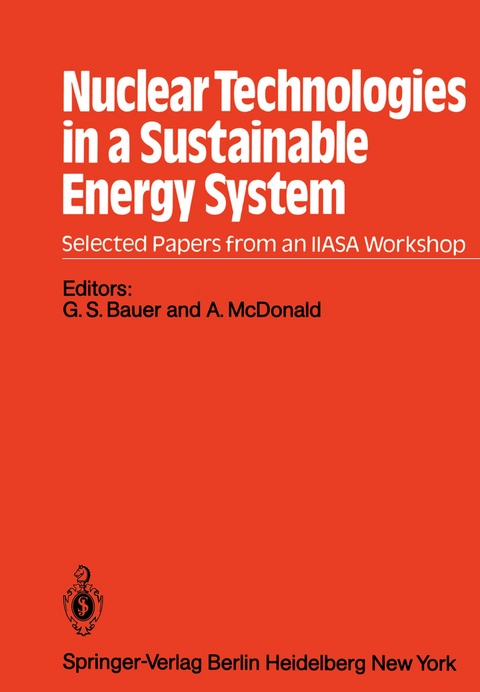
Nuclear Technologies in a Sustainable Energy System
Springer Berlin (Verlag)
978-3-642-81990-2 (ISBN)
Section One: Global Strategies and Concepts.- Energy strategies and nuclear power.- The nuclear energy continuum and its spectrum of choices.- On the internal logic of energy islands.- Section Two: Fission and Fission Breeding.- Self-sustaining systems of reactors.- Sustainable minireactors: a framework for decentralized nuclear energy systems.- Small reactors in a neutron-abundant world.- On the role and technological readiness of fast breeders and fusion-fission hybrids in the world nuclear future.- Section Three: Fusion and Dense Plasma Neutron Sources.- The tokamak as a candidate for a D-T fusion reactor.- The fusion breeder: its potential role and prospects.- Prospects of hydrogen production through fusion.- Modern electrolytic procedures for the production of hydrogen by splitting water.- The dense plasma focus as a source of neutrons.- Possible applications of a hybrid thermonuclear energy source based on a DPF device in modern energy complexes.- Section Four: Accelerator Breeding.- Accelerator spallation reactors for breeding fissile fuel and transmuting fission products.- Accelerator breeder applications.- The FRG project for a high-power spallation neutron source for fundamental research.- On the need for accelerator breeders and fission converter reactors.- Section Five: Handling the Waste.- Future processing of spent reactor fuels.- A proposed concept for actinide-waste transmutation.- Transmutation of radioactive wastes: an assessment.- Section Six: Reflections and Summary.- Quick is beautiful.- Panel discussion.- Author index.
| Erscheint lt. Verlag | 13.12.2011 |
|---|---|
| Mitarbeit |
Koordination: W. Häfele, A.A. Harms |
| Zusatzinfo | X, 330 p. |
| Verlagsort | Berlin |
| Sprache | englisch |
| Maße | 170 x 244 mm |
| Gewicht | 587 g |
| Themenwelt | Naturwissenschaften ► Biologie ► Ökologie / Naturschutz |
| Technik ► Elektrotechnik / Energietechnik | |
| Schlagworte | Brutstoff • Energy • Hydrogen • Hydrogen Production • Kernbrennstoff • Kernfusion • Kernreaktor • Nuclear • nuclear energy • Nuclear Technologies • Radioaktiver Abfall • Reaktor • Sustainable energy |
| ISBN-10 | 3-642-81990-7 / 3642819907 |
| ISBN-13 | 978-3-642-81990-2 / 9783642819902 |
| Zustand | Neuware |
| Haben Sie eine Frage zum Produkt? |
aus dem Bereich


